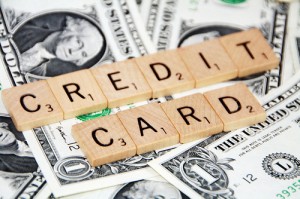3 Insider Tips for Paying Off Your Credit Cards
 Even if you aren’t currently carrying a balance on your credit cards, there are a number of helpful tips and tricks that could prove useful to you in the future. Here are three tips everyone should know about credit card interest and making payments to get rid of credit card debt.
Even if you aren’t currently carrying a balance on your credit cards, there are a number of helpful tips and tricks that could prove useful to you in the future. Here are three tips everyone should know about credit card interest and making payments to get rid of credit card debt.
Start by Paying the Minimum
We’ve all heard that it doesn’t make good financial sense to only pay the minimum balance on your credit cards, but when you first decide to pay off your debt the minimum may be all you can afford. That’s OK, because it’s just a starting point.
What you should always remember is that credit card companies make the most money from those consumers who retain a balance AND make low payments. You should make every effort to make the payment more than the minimum and wherever possible raise that payment as often as possible.
If you have a few dollars over in the middle of the month as a result of your ‘belt tightening’ at home, use that to reduce the balance amount on your card. Your credit card company only requires payment once per month, but there’s no rule against sending payment multiple times per month.
Pay on Payday
Financial guru Clark Howard suggests paying every other week, for example, on payday Friday. Why not make it easy on yourself and send in half of your credit card payment each payday when you know you’ll have it. Just make sure that you have met your “minimum due” amount by the correct date. Another benefit to this system is that although it feels like you are paying twice per month, you are actually paying 26 times per year.
If the minimum balance the first month is $100, then $100 becomes your monthly payment amount for the rest of the debt it’s gone. Even though the minimum amount will continue to drop, you still stick with the same payment of $100. Your debt should be cleared in a decent amount of time if you don’t add to the balance.
If you have more than one card with a balance, always pay the minimum on the smaller balances but pay as much as you can on larger balances. The smaller balance cards attract less interest because the balance is lower.
Average Daily Balance
If you like the idea of chipping away at the balance on your credit cards by making more than one payment per month, then you will want to understand how credit card interest is calculated. It is less complicated than you may have been led to believe, but here are the details in even more simple terms.
Most credit card companies use the same system, the Average Daily Balance, to calculate interest charges. The interest is calculated from an average of each day’s balance. It’s not at all like a house payment or a car payment. The cardholder can actually affect the amount of interest charged and the overall cost of borrowing the money, just by choosing when, and how often, to pay the credit card bill!
As an example, if a cardholder bought a $1,000 dining room table in May on his credit card with plans to pay it off through June and July, some payment options would save him more money than others. Assuming a 14 percent interest rate, one payment of $500 on June 15 yields an average daily balance of $733.34 and interest of $8.36. Two payments of $250 each two weeks apart in June, however, comes to an average daily balance of $503.34 and interest totaling $5.74. And four payments, once per week in June of $125, give an average daily balance of $379.16 and interest of $4.32. Plan how you’re going to pay down debts to save on interest without putting down more money than you can afford.
Use Sparingly at all Times
This is the most sensible thing to do. Limit your usage of any card in your possession to essentials rather than luxuries. Pay back the balance due as soon as the bill arrives in the mail or sooner if you can. Maintaining a zero or as close to zero balance will help protect you against potential debt and will over time help improve any damaged credit rating you may have built up.
Image credits: http://www.flickr.com/photos/68751915@N05/6355848263/
Source: http://www.clarkhoward.com/topics/credit_debt/

Category: Credit Card






Comments (1)
Trackback URL | Comments RSS Feed
Sites That Link to this Post